Newcastle Disease; Causes, Symptoms, Treatment and Prevention Tips

The Newcastle disease, just like many other chicken diseases, is a very contagious disease that hinders the growth of chickens.
It is a viral disease that spreads very rapidly among poultry birds and could lead to the death of your chickens.
This high death rate can hugely impact the profits that you can make from your poultry business.
There is a need to curtail the spread of this disease so that you can save your flock as well as your profits.
In this article, you will gain enough knowledge that will help you to stop the attack of the Newcastle disease on your farm.
You will learn about the cause of the Newcastle disease, how it spreads, its symptoms, prevention techniques and possible treatments.
So, if you are ready to learn about the Newcastle disease and how to stop its spread on your poultry farm, then continue reading.
What does Newcastle disease mean?
Newcastle disease is also referred to as Ranikhet Disease, Avian Pneumoencephalitis, Avian Distemper, Exotic Or Velogenic Newcastle Disease.
It is a highly viral, contagious and often severe disease that affects both wild birds as well as native birds.
Once it infects a chicken, it quickly spreads to other chickens on the farm.
The number of deaths can be high and those birds that do recover can transmit the disease to healthy birds.
The Newcastle disease comes in different variants as you will see in our next discussion.

What are the types of Newcastle disease?
Here are the different forms of the Newcastle disease.
1. Viscerotropic velogenic:
This is a highly pathogenic form of the Newcastle disease which causes intestinal bleeding.
2. Neurotropic velogenic:
This form of the disease causes high mortality of the chickens as a result of breathing difficulty and nervous symptoms.
3. Mesogenic form of the Newcastle disease:
This is another form that shows symptoms of a respiratory disorder, occasional nervous signs, but a low mortality rate.
4. Lentogenic or respiratory:
This strain of the Newcastle disease does not usually cause disease in adult chickens.
It mostly affects young birds and you will observe symptoms of respiratory problems.
5. Asymptomatic:
This strain of the disease does not show any visible symptoms.
What are the causes of the Newcastle disease?
There’s no smoke without fire; so, definitely, the Newcastle Disease has its sources.
Newcastle Disease is one of the most noticeable and common respiratory diseases of poultry that occurs all over the world.
The agent involved in the manner of causation of this disease is a single-stranded, nonsegmented, enveloped RNA virus belonging to paramyxoviruses.
Newcastle disease (ND) is a member of the family Paramyxoviridae in the genus Avulavirus.
There are ten serotypes of avian paramyxoviruses designated APMV-I to APMV-10 and ND virus (NDV) has been designated APMV-1.
How does Newcastle disease spread?
Below are some of the ways via which the Newcastle disease can spread on your farm.
1. Introducing infected agents into your poultry.
Newcastle Disease is a contagious disease that can spread by introducing new infectious agents into your poultry farm.
Also, it could be by the spread of already infectious agents that are inside the flock.
2. Through Droppings Of Native or Wild Birds:
Newcastle Disease spread primarily through the droppings and secretions from infected birds.
It also spread through feathers and discharges from the nose and mouth as well as contaminated equipment and vehicles.
3. Direct contact with infected materials:
The disease spread when there’s direct contact with an infected bird or direct contact with people, equipment, vehicles, shoes or clothing contaminated by infected birds.
It will definitely affect the healthy ones, thereby leading to the spread of the disease.
4. Airborne or inhalation:
Newcastle Disease could be airborne and spread by inhalation or ingestion of viruses.
Free-flying birds carrying this disease can spread them readily.
Infected birds can shed the virus into the air, where it can be ingested by healthy birds of the flock.
5. Open injuries, mucus, pecking, feather dander.
The Newcastle Disease can also spread through injuries, mucus & Feather dander.
If there’s an infected chicken amidst 20 other healthy ones.
This could lead to widespread health problems when the healthy ones touch these things. Newcastle is a contagious disease.
6. Spread inside confinement:
Newcastle disease spreads faster among chickens and birds inside confinement, such as commercially raised poultry.
The symptoms of the infection start to appear in the flock within 2 to 11 days after exposure through the air.
The virus spreads slowly through chicken poop or oral transmission.
However, it spreads rapidly when the birds are put together in a tight place.
7. Newcastle Disease can survive for long periods of time outside of a living host:
They can remain infectious for months, especially at a very low temperature.
The same is the case when it’s shielded by associated organic material like feathers, carcasses, and bedding litter etc.
However, the virus is destroyed rapidly by exposure to ultraviolet rays in sunlight.

What are the symptoms of Newcastle disease?
Symptoms of Newcastle Disease in Chickens Clinical signs vary depending on the system affected.
Some virus strains attack the nervous system, others the respiratory, or digestive system.
The following are the signs of unease the birds display when affected by the Disease;
1. Dysfunctional nervous system:
Newcastle Disease affects the nervous system of the birds.
It affects the brain, spinal cord, sensory organs, and all of the nerves that connect these organs with the rest of the body.
This eventually leads to an uncoordinated walk and movements.
As a result, affected birds stumble frequently, and suffer proper balance.
Also, you will observe an abnormal head and neck position, resulting in head tilt or wry neck appearance.
Unilateral or bilateral partial or complete paralysis of their legs and wings will be observed.
2. Respiratory Infection:
Newcastle Disease affects the respiratory system of the birds.
This causes distress such as gaping beak, coughing, gurgling, sneezing.
You will also notice rattling nervous signs characterised by physical weakness, emotional stress, paralysis and twisting of the neck.
3. Constant Fatigue & loss of appetite:
The birds experience inner weakness constantly and may tend to lead to the bird’s docility since it possesses very low energy.
However, the death of the birds may happen if care is not taken and the fatigue persists.
4. Facial Edema:
Facial Edema is also referred to as the swelling of the face.
It occurs on the face of birds that have contracted Newcastle Disease.
There’s an enlargement of the face due to fluid buildup or inflammation in the facial tissues.
It also occurs anywhere on the face, but it is most evident on the lips, cheeks and eyelids of the birds.
5. Reduction in egg production:
Newcastle disease is one of the reasons your chickens are not laying eggs.
When Newcastle Disease affects the birds, they lack appetite and when chickens are not well fed, egg production will be reduced drastically.
Also, birds that are stressed will suffer a reduction in the production of eggs.
Eggs may also appear abnormal in colour or shape, and also have watery albumen.
6. Malfunctioning Of Digestive System:
Newcastle Disease infects the chickens’ digestive tracts which affect the feeding habit of the birds.
This, in turn, leads to a reduction in weight size and a poor food conversion ratio.
In general, severe symptoms of Newcastle disease include;
- Muscle tremors,
- Drooping wings,
- Twisted head,
- Circling,
- Paralysis,
- Haemorrhage in the intestine,
- Congestion in the poultry house and mucoid exudates seen in the respiratory tract.
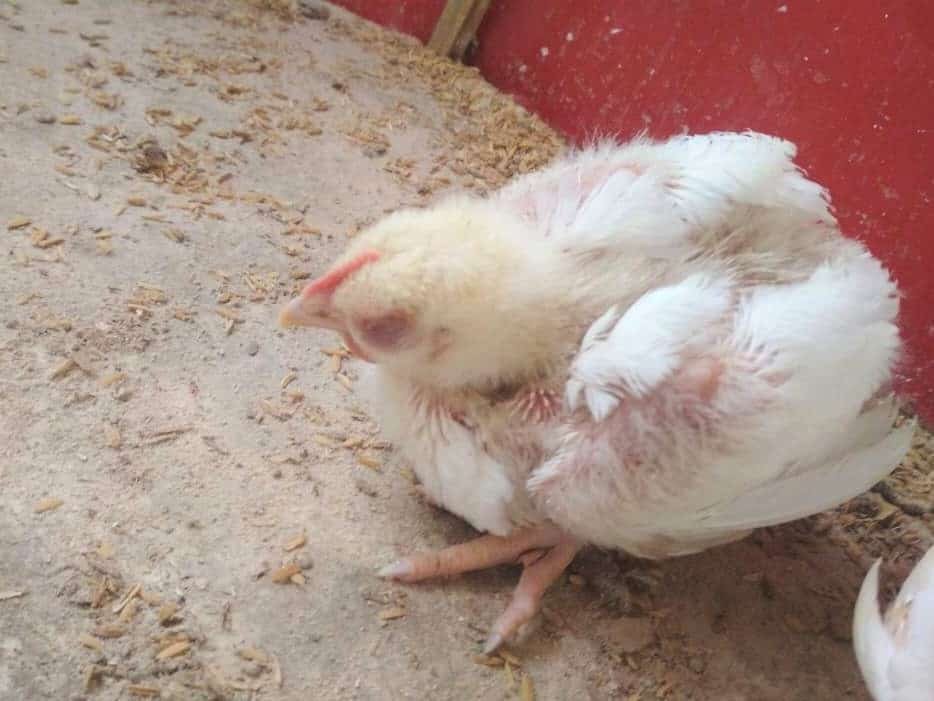
What are the preventive measures in handling the spread of Newcastle disease?
Newcastle is a deadly disease and a big threat to poultry farming.
So, to cut down economic losses, you must apply some preventative measures.
These measures will help to prevent the widespread of this contagious disease in poultry farms.
Below are some of the preventive measures for controlling the spread of Newcastle disease on the farm.
- Parasite control
- Vaccination
- Identification & Treatment of Sick birds
- Separating multi-age flocks
1. Parasite Control:
It’s noteworthy to understand that birds that dwell on the floor and have access to fields and outdoor areas have a higher exposure to internal and external parasites.
For birds in these conditions, it is necessary to have a prevention plan in place and treat them as required.
It could be through biological control, physical control or chemical control which involves spraying or dusting birds thoroughly with an approved insecticide.
If you can see lice or mites – spray the shed, perches and nests thoroughly.
This helps to minimise the transmission of Newcastle Disease and keep birds in good condition so they can resist it.
2. Vaccination Against Newcastle Disese:
Vaccination can prevent poultry birds from Newcastle diseases.
This could be attained by applying for a suitable vaccination program.
Also, you need to purchase the appropriate vaccine or drugs for this purpose.
This will help to boost the immune system of the birds and protect them against antibodies.
Always follow the instructions on the label of vaccines; including storage conditions.
Also, remember to only use disposable syringes and then discard all unused vaccines, syringes and needles in a proper manner.
Even though this vaccine is easy to administer to your birds, it is not advisable to apply it by yourself.
You may need specialists like a veterinarian who understands the kind of vaccines to use and their measurements.
Unless you have such experience, don’t do it by yourself.
3. Identification & Treatment of Sick birds:
When raising birds, a farmer must always observe the birds regularly.
Doing this, he can easily identify signs of infections, sicknesses or whatsoever problems within the flock such as feather pecking.
If detected, separate such sick chickens and other poultry from the main flock and obtain a diagnosis from a specialist.
Infected birds usually appear different to healthy birds.
You can give the correct treatment once you identify the disease or problem.
Keep the infected birds quarantined from the flock until they are completely recovered.
If medication is given, it is important to adhere to any withholding periods.
4. Separate the Flock According to Their Age:
Introducing younger birds into a flock of older birds leads to an increased susceptibility of disease transfer from the older birds to the younger birds.
Older birds often build strong immunity against diseases like Newcastle Disease.
What are the possible treatments for Newcastle Disease?
Presently, the drugs to treat or cure Newcastle disease (ND) are not yet readily available.
Hence, the only solution available is to avoid its occurrence through the vaccination of birds.
Nevertheless, below are two major herbs and organic solutions that have been concocted in treating the Newcastle Disease.
1. Onion-Garlic Syrup:
This is an organic treatment that is prepared by a mixture of garlic and onion.
These two ingredients have very powerful antiviral characteristics.
This causes them to attack a wide spectrum of pathogenic viruses, including the Paramyxoviridae, which causes ND.
2. Oregano, Lemon and Rosemary:
The mixture of oregano, lemon and rosemary create a powerful organic remedy in combating Newcastle Disease.
Each ingredient contains great antiviral, antibiotic, anti-inflammatory and antifungal properties.
These properties help in building the immune system of the chicken to combat against the antigens that might weaken the system and give direct access to Newcastle Disease.
Frequently asked questions about the Newcastle Disease.
Is Newcastle Disease Contagious?
Yes, the Newcastle disease is very contagious.
It’s a contagious viral avian Disease affecting many native and wild bird species and it’s easily transmissible to humans.
What will happen if I don’t treat a chicken that’s infected with Newcastle Disease?
Death, of course. When you don’t treat a chicken that’s infected with the Newcastle disease, it will eventually die.
Considering all the symptoms we listed, it gets severe and causes the sudden death of such a chicken.
Conclusion
Newcastle Disease is a disease of poultry birds that kills birds more rapidly than any other Disease of birds.
However, you can follow the steps listed in preventing the spread of this viral disease.
Vaccinate the poultry birds regularly, and this will help to reduce the loss and the havoc it wreaks on the poultry farm.
References:
- 12 Best Chicken breeds for Eggs – chicken breeds for eggs
- When Do Chickens Start Laying Eggs Regularly?
- How Many Eggs Does A Chicken Lay In A Week?
- Fermenting chicken feed – The definitive guide
- 10 Sure Ways To Stop Chickens from Eating Their Eggs [+Bonus]
- 6 Best Chicken Egg Incubators for Chicken Eggs and Other Birds
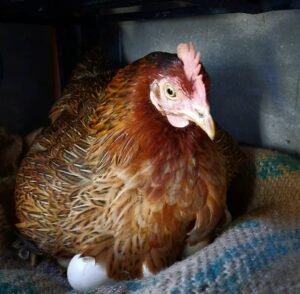
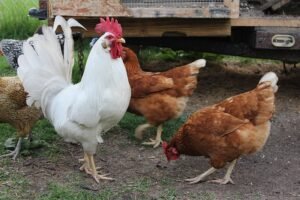

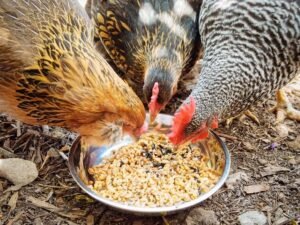
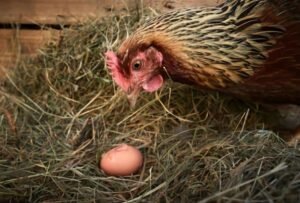


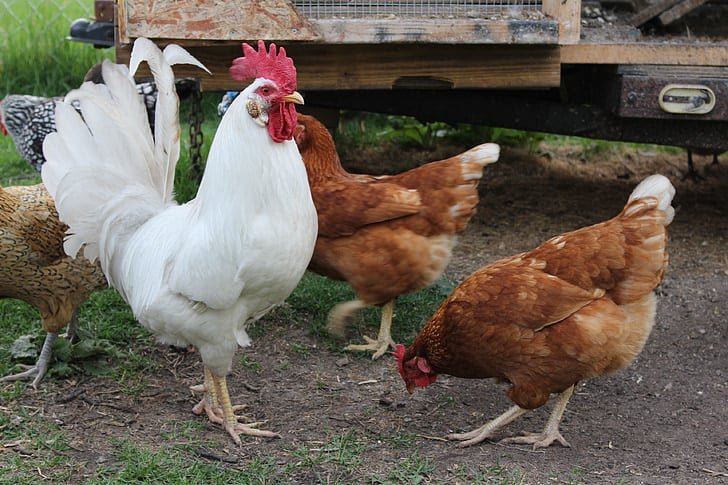

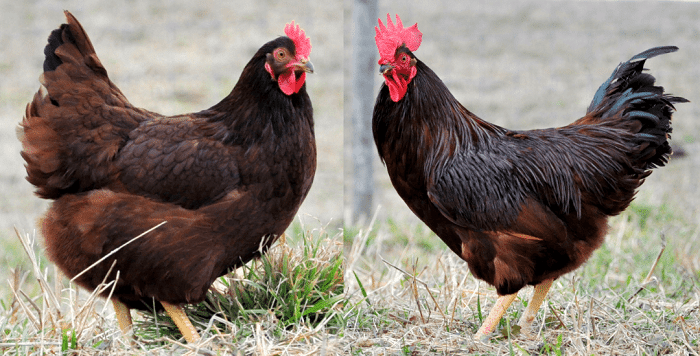

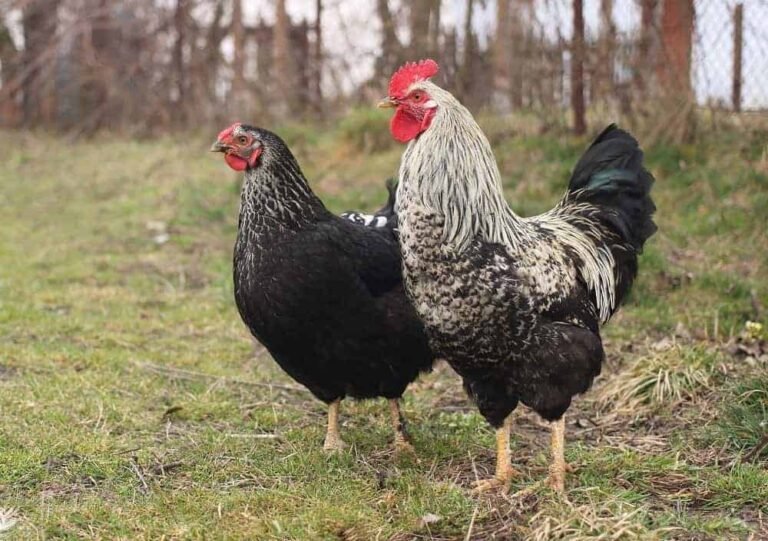
its so helpful